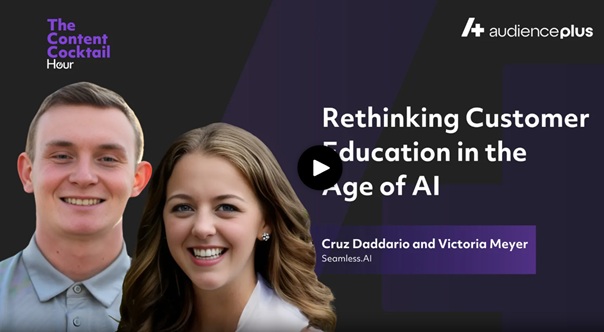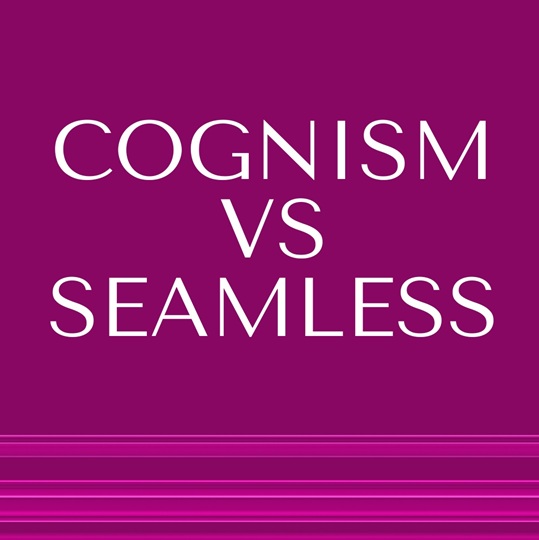Extracting emails simply refers to the process of obtaining email addresses from various sources using an email extractor, also known as an email spider. These devices tap into web pages and user engagement on dedicated platforms to procure email addresses en masse.
This practice, deeply embedded within the ever-evolving digital landscape, brings about multiple questions concerning its legality.
Are Email Extractors Legal?
The legality of email extractors depends on several factors, including how the emails are obtained, where you are located, and how the extracted emails will be used. In general:
- It is usually legal to extract or scrape emails from publicly available websites if there are no explicit restrictions against doing so.
- It is typically illegal to extract emails from websites or services that prohibit automated scraping/extraction in their terms of service.
- Using extracted emails for spam or sending unsolicited bulk emails is illegal in most jurisdictions without proper consent.
- Extracting emails from private databases or platforms you don't have authorized access to would be considered hacking and is illegal.
- Some jurisdictions have laws around data privacy and consent that may restrict extracting and using personal email addresses for commercial purposes without permission.
Verdict, extracting publicly listed emails through allowed methods is legal, but using those emails improperly or extracting from prohibited sources is likely illegal in most places. The US doesn’t currently prohibit the extraction of emails from public sources. Soin short, Iif someone puts information on the web, an email extractor could potentially scrape and use that data.
Related: How to Build B2B Email List
It's best to check the specific terms of service and laws that apply in your area before extracting and using email addresses, especially for commercial purposes. Improper email harvesting can potentially lead to penalties depending on the laws violated.

Ethical Dilemma of Selling Scraped Emails
Email extraction and scraping can raise significant ethical and legal concerns that businesses need to carefully consider. Here is some more detailed information on this topic:
Legal Landscape
Laws around email scraping and use vary considerably by jurisdiction. In many regions, there are data privacy laws that restrict collecting and using personal data like email addresses without proper consent.
In the U.S., the CAN-SPAM Act prohibits sending commercial emails to scraped email lists without permission. The GDPR in the EU has even stricter consent requirements around using personal data.
Related: Avoid Spam in Emails
Many websites and online services explicitly prohibit scraping of user information like emails in their terms of service, which could open up legal liability for violation of terms.
Ethical Considerations
Scraping emails without consent can be seen as a violation of personal privacy, even if the email addresses are publicly listed somewhere.
Using scraped emails for unsolicited bulk commercial emails is widely considered an unethical spam practice that can harm reputations.
There are ethical questions around monetizing personal data collected without explicit consent from individuals.
Email Scraping Potential Risks
- Legal risks of violating data protection laws like fines, penalties or lawsuits in some cases.
- Reputational damage to companies seen as unethically obtaining and exploiting personal data.
- Email providers and networks blocking or blacklisting senders who use scraped email lists.
- Negative user experience and perception of receiving unsolicited mass emails.
Email Extraction Best Practices
- Obtain proper consent and permission before collecting and using personal email addresses.
- Respect the wishes of individuals who opt-out of commercial emails.
- Provide clear notice about how email addresses will be used when collected.
- Obey all applicable data privacy laws and anti-spam regulations.
- Use opt-in email acquisition methods focused on permission-based marketing.
While email scraping may be technically possible, there are significant legal and ethical landmines to navigate carefully. Many marketing experts advise prioritizing opt-in, consent-based email lists as a more sustainable model respectful of privacy.
Related: 17 Email Outreach Templates

The Legality of Web Crawlers
While web crawlers do serve valid purposes like indexing websites for search engines, when retooled for scraping personal information like emails, it enters a legal and ethical gray area. Most crawlers are respectful of robots.txt directives, but some unscrupulous actors create tools explicitly for harvesting emails against website owners' wishes.
Consent and Privacy Issues
At the core of the email scraping debate are issues around consent and data privacy. Ethical practices dictate that emails should only be collected with proper user consent and transparency about how the data will be used. Scraping bypasses this by taking emails posted publicly, despite the fact that users likely did not intend for their email to be harvested in bulk.
Spam and Abuse Concerns
A major worry with email harvesting is that the collected addresses will be used for malicious spam campaigns or other abusive practices that can harm users through harassment, fraud attempts, or simple annoyance. Most reputable email providers have anti-spam measures to detect and block these sorts of bulk unlawful emailing.
Related: How to Send Bulk Emails
Potential Legal Penalties
Depending on the jurisdiction, bulk email scraping without consent can potentially violate data privacy laws like GDPR, CAN-SPAM, CCPA and more. This could open up penalties including fines, enforcement actions, or even criminal charges in extreme cases of large-scale abuse.
Ethical Email Marketing
To stay within ethical and legal bounds, email marketers should build their lists through transparent opt-in sources where users explicitly consent to be contacted. This includes opt-in web forms, co-registration lists, trade show/event lists and other permission-based sources. Purchasing or scraping lists circumvents this trusted permission model.
Related: How to Buy Email Lists
While regulations are still evolving, most legal experts advise that bulk email scraping without consent poses significant ethical and potential legal risks that should be carefully weighed against any perceived business benefits. Prioritizing opt-in, permission-based email practices is widely regarded as the proper way to develop sustainable email marketing programs.
Related: 5 Email Marketing Hacks to Generate Sales
Email Scraping vs. Data Enrichment Tools
While email scraping tools often pull addresses from websites, forums, or social platforms without consent, data enrichment platforms operate differently. Instead of blindly extracting, they enhance existing contact records with verified, permission-based data.
- Scraping: High risk, little control over accuracy, often violates terms of service.
- Enrichment: Provides up-to-date, accurate contact details from legal, trusted databases.
This distinction is critical for B2B teams. Rather than risk compliance violations, organizations can use enrichment solutions that deliver verified contacts within a legal framework, protecting both reputation and deliverability.
The LinkedIn Email Extraction Debate
Email scraping from LinkedIn is a legally ambiguous and ethically questionable practice that businesses should approach with great caution. Here are some key points on this issue:
LinkedIn's User Agreement
LinkedIn's User Agreement clearly prohibits any form of scraping or harvesting data from the platform. This includes personal information like email addresses. The terms state that automating processes to aggregate data from LinkedIn without express written permission is a violation that can result in account termination.
However, user agreements are contracts, and whether they are fully legally binding versus public policy interests is interpretable. Courts in different jurisdictions have ruled in varying ways on the enforceability of prohibitions against scraping publicly available data.
Data Privacy Laws
Laws like the EU's GDPR provide protections around personal data like email addresses. Harvesting this data without consent can potentially violate these statutes, regardless of whether the emails were technically "public" on a site like LinkedIn.
Even in regions without comprehensive data privacy laws, misleading collection practices or use of scraped emails for unsolicited commercial bulk emails could potentially violate operational laws.
Ethical Considerations
Beyond pure legality, there are ethical questions around whether harvesting emails from a professional networking platform respects user privacy and expectations. Most members do not anticipate or want their contact information scraped indiscriminately.
Potential Penalties
Depending on the extent of the scraping activity, LinkedIn and other companies have pursued legal action against scrapers for violations like:
Breaching User Agreements
- Circumventing access controls
- Engaging in deceptive practices
- Violating computer crime/hacking laws
This could lead to civil lawsuits, criminal charges for data theft, and other potential penalties.
Best Practices for Compliance
Businesses that want to use email for outreach should build programs on transparency, consent, and trust. A few key practices include:
- Rely on opt-in contacts. Use lead forms, gated content, and events to capture consent.
- Be transparent about data use. Tell users how you’ll use their email addresses.
- Maintain accurate, updated records. Regularly verify contacts to reduce bounce rates and complaints.
- Respect regional laws. Align campaigns with GDPR, CAN-SPAM, and CASL where applicable.
- Audit tools and vendors. Ensure the platforms you use are compliant and provide verified data.
These steps not only minimize legal risk but also improve engagement, since consented audiences respond more positively to outreach.
Choosing the Best Email Extractors
Various email extractors in the market offer a wide range of features and capabilities, making it challenging to select the best one for your needs. Things like location, accuracy, and experience are some of the factors.
Related: How to Find Emails to Generate Revenue
A few of the popular options include sales tools like Seamless.AI, Zoominfo, Apollo, and Lusha, which are all renowned for their ease of integration and high precision in extracting email addresses. While they all promise exceptional results, it is important to consider their legal standing in different regions.
Evaluating Email Extractor Policies
When vetting email extractor tools, it's critical to understand their policies and data sources:
Tools harvesting emails from public web pages may be permitted in some areas, while those lifting emails from private databases/platforms are more likely prohibited.
Some extractors claim to only use legitimate permissions-based email databases, while others utilize more ambiguous web scraping methods.
Look for transparency around how consent is obtained for their email sources and whether they comply with major data privacy frameworks. Credible extractors should provide documentation on legal use standards and any restricted regions/industries.
To ensure compliance with privacy laws, consider using email extractors that have taken proactive measures to comply with regulations. Some reputable providers have implemented features such as consent-based email extraction, which only extracts email addresses from publicly available sources or with the user's consent. This not only protects your recipients' privacy but also reduces the risk of violating any legal requirements.
In conclusion, answering the question "Are Email Extractors Legal?" requires considering multiple factors such as the jurisdiction where you or the target is based, the source of the emails, and how you intend to use the extracted data. A thorough understanding of relevant data protection and privacy laws is essential for any business engaged in this practice. When in doubt, consulting with a legal expert is the best course of action.
The Future of Email Scraping
The landscape around email data is only getting stricter. With global privacy laws expanding, such as GDPR in Europe, CPRA in California, and emerging frameworks in Asia-Pacific, the risks of scraping are increasing.
Future trends we're looking at suggest:
- Greater enforcement: Regulators are levying more fines against companies misusing personal data.
- Tighter email deliverability rules: Email providers like Google and Microsoft are implementing stricter filters to block unverified senders.
- Shift to verified data platforms: Businesses will increasingly turn to AI-driven, compliance-first tools that keep pace with evolving laws.
Ultimately, scraping is becoming less viable, while compliant, enrichment-based solutions are emerging as the sustainable path forward.
Building Email Lists the Right Way
Email scraping may seem like a quick fix for growing your contact list, but the legal, ethical, and reputational risks often outweigh the rewards. Between compliance concerns, low-quality leads, and potential damage to sender reputation, businesses that rely on scraping can end up hurting their sales efforts instead of helping them.
The smarter approach is to invest in tools that deliver verified, accurate, and compliant contact data. That’s where Seamless.AI comes in. Unlike risky scraping methods, Seamless.AI provides access to a real-time, AI-powered B2B contact database, ensuring you connect with decision-makers through clean, reliable data. With Seamless.AI, your sales team can spend less time worrying about compliance and more time building meaningful relationships that convert.

















